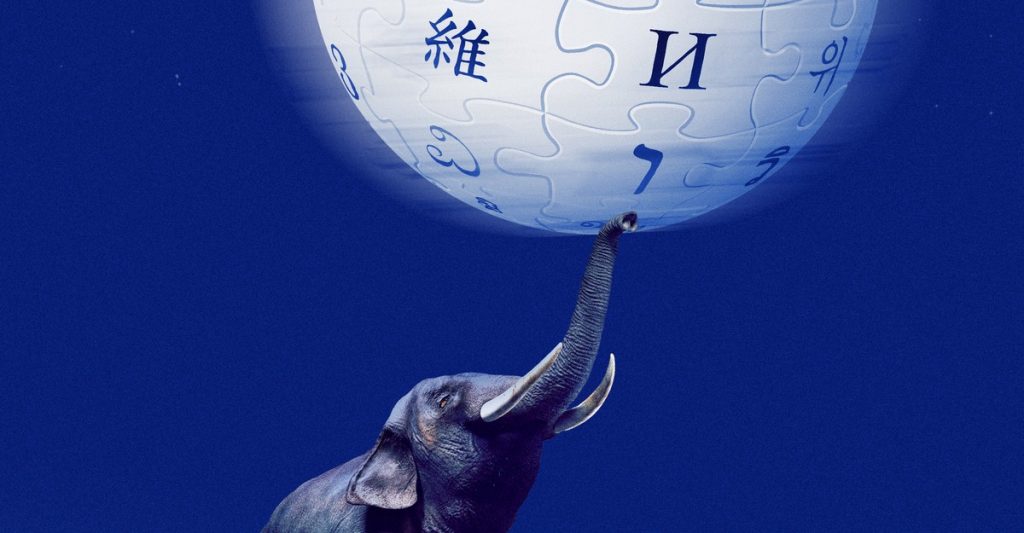Elon Musk’s War on Wikipedia: A Battle for Control Over Information
In recent months, Elon Musk has added Wikipedia to his growing list of grievances, declaring, "Defund Wikipedia until balance is restored!" on X, his social media platform. This outburst came shortly after an update to his own Wikipedia page, which described a gesture he made during an Inauguration Day speech as resembling a Nazi salute. Although the entry explicitly stated that Musk denied any meaning behind the gesture, he accused Wikipedia of being "an extension of legacy media propaganda!" This attack was not an isolated incident but part of a broader campaign by Musk and his allies to delegitimize the digital encyclopedia, which they claim is controlled by "far-left activists." Other prominent figures, such as tech investors Shaun Maguire and Chamath Palihapitiya, have joined Musk in disparaging Wikipedia, with some even labeling it "Wokepedia" and accusing it of ideological bias.
The Campaign Against Wikipedia: A Misguided Crusade?
Despite the accusations, Wikipedia has consistently demonstrated its commitment to neutrality and transparency. Operated by a nonprofit and maintained by volunteers, the platform has avoided the profit-driven algorithmic chaos that plagues social media and search engines. Instead, it has become a rare refuge for fact-based information in an increasingly fractured online landscape. The Wikimedia Foundation, which oversees Wikipedia, has made concerted efforts to address knowledge gaps and improve diversity among its contributors. For instance, a 2020 survey revealed that 87% of editors were male and over half lived in Europe, prompting initiatives to broaden representation and reduce bias. studies have shown that greater diversity among editors leads to less biased content, but these efforts have been interpreted by critics as evidence of Wikipedia’s alleged left-wing takeover.
Conservative think tanks and publications have also weighed in, claiming that Wikipedia’s coverage of right-leaning organizations and figures is unfairly negative. However, a 2016 Harvard Business School study analyzing over 70,000 political articles found only a mild Democratic slant, with nuanced variations depending on the topic. Researchers concluded that accusations of "extreme left-leaning bias" are unsupported by evidence. Wikipedia’s editors, who operate under strict guidelines to remain neutral and factual, deny accusations of political manipulation. "Wikipedia is not influenced by any one person or group," a spokesperson stated. "We don’t write to convince but to explain and inform."
The Real Motive: A Desire for Control
Musk’s attacks on Wikipedia seem less about factual inaccuracies and more about control. As one of the most influential figures in tech, Musk has expanded his reach by acquiring platforms like Twitter (now X), which he uses to amplify his far-right views. He has also positioned Starlink, his satellite-internet company, as a critical gateway to online access for millions. However, Wikipedia remains one platform he cannot buy or manipulate. Its decentralized, volunteer-driven model is inherently resistant to ideological capture, making it a thorn in the side of those like Musk who seek to dominate the flow of information.
The anti-Wikipedia contingent, which includes figures like Maguire and Palihapitiya, frames its criticism as a defense of free speech. Yet their rhetoric often reveals a more insidious agenda: the promotion of a singular, ideologically aligned "truth." For them, efforts to diversify perspectives on Wikipedia are not about inclusivity but "censorship." This mindset reflects a growing trend among anti-"woke" tech figures who claim to champion free speech but only tolerate viewpoints that align with their own.
The Irony of Wikipedia’s Structure
Ironically, Wikipedia embodies many of the principles that Musk and his allies claim to admire. The platform’s reliance on collective editing and fact-based consensus is similar to X’s Community Notes feature, which Musk touts as a model for decentralized moderation. Jimmy Wales, Wikipedia’s co-founder, has even referred to the platform as the "last bastion of shared reality." Yet, while Wikipedia has become a sanctuary for factual information, it faces increasing pressure from those who seek to dismantle its independence.
The Fight for Wikipedia’s Survival
Musk’s ability to influence public opinion through his vast following poses a significant threat to Wikipedia’s credibility. By repeatedly blasting the platform and calling for its defunding, he risks undermining a site that has become a cornerstone of online knowledge. Wikipedia’s annual budget of $189 million relies heavily on donations, and attacks from figures like Musk could discourage contributors and donors. The stakes are high: in an era where misinformation runs rampant, Wikipedia remains a vital resource for those seeking reliable information.
As the anti-Wikipedia campaign intensifies, it is clear that the battle over the platform is not just about facts—it’s about who gets to control the narrative. For democracy and free speech to thrive, platforms like Wikipedia must remain independent and resilient against efforts to distort or manipulate them. In a world where tech moguls like Musk wield unprecedented influence, the survival of Wikipedia is more crucial than ever. Its improbable success as a volunteer-driven, fact-based encyclopedia is a testament to the power of collective effort and shared truth—a legacy worth defending.


